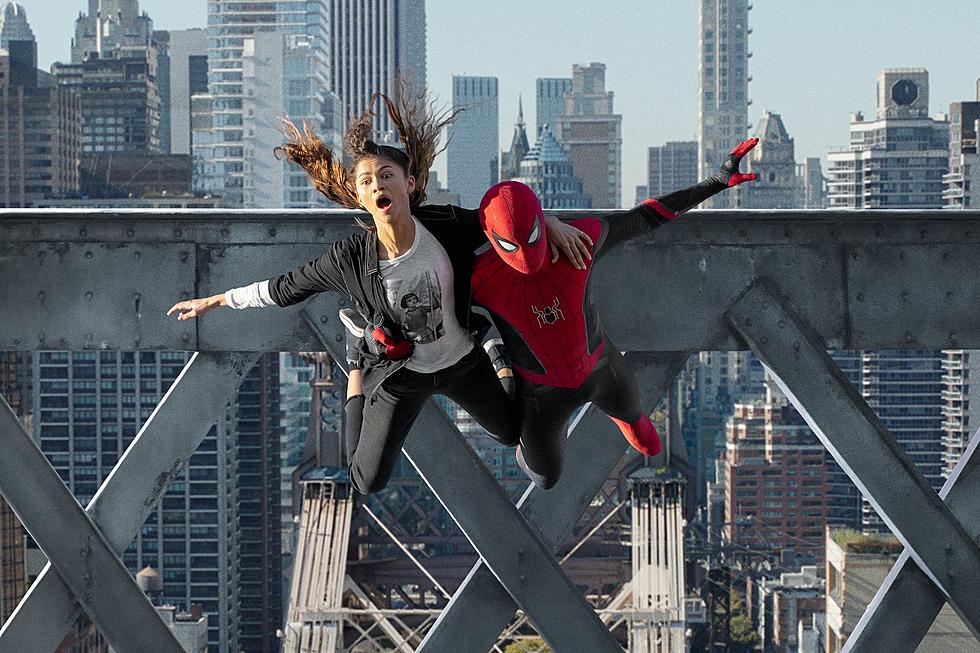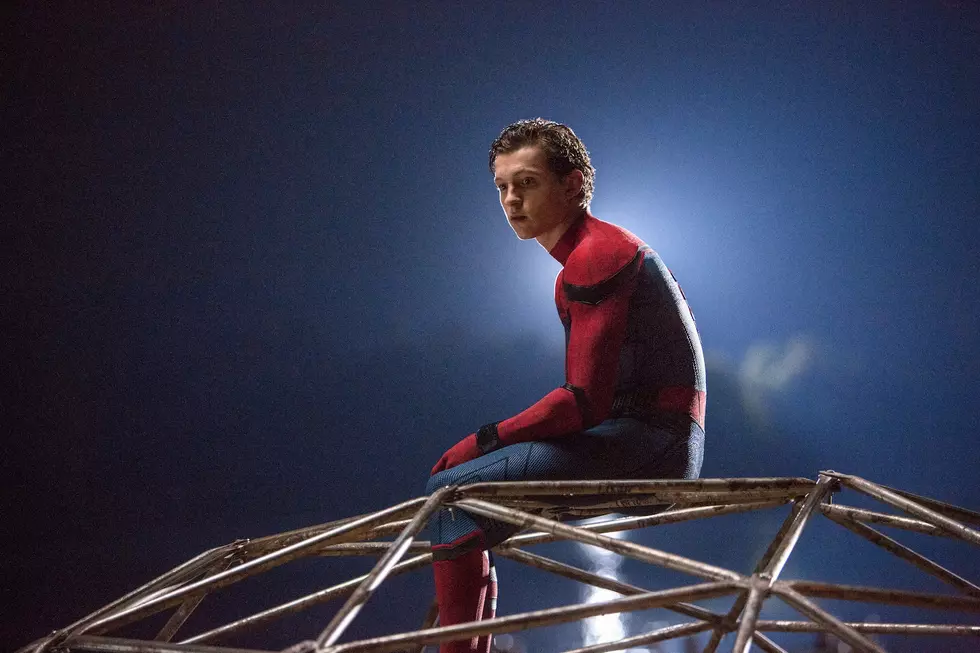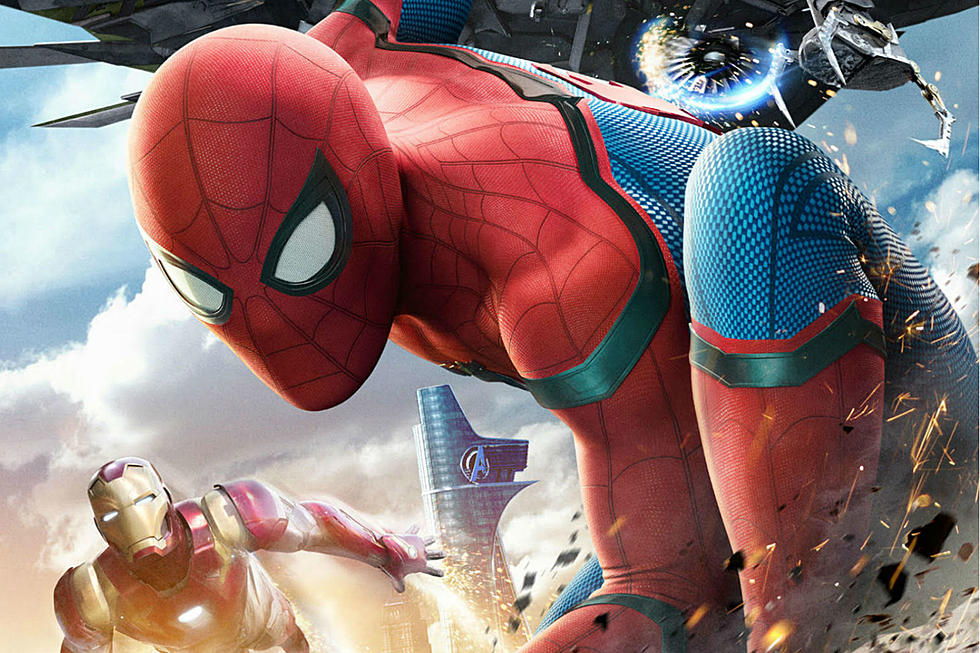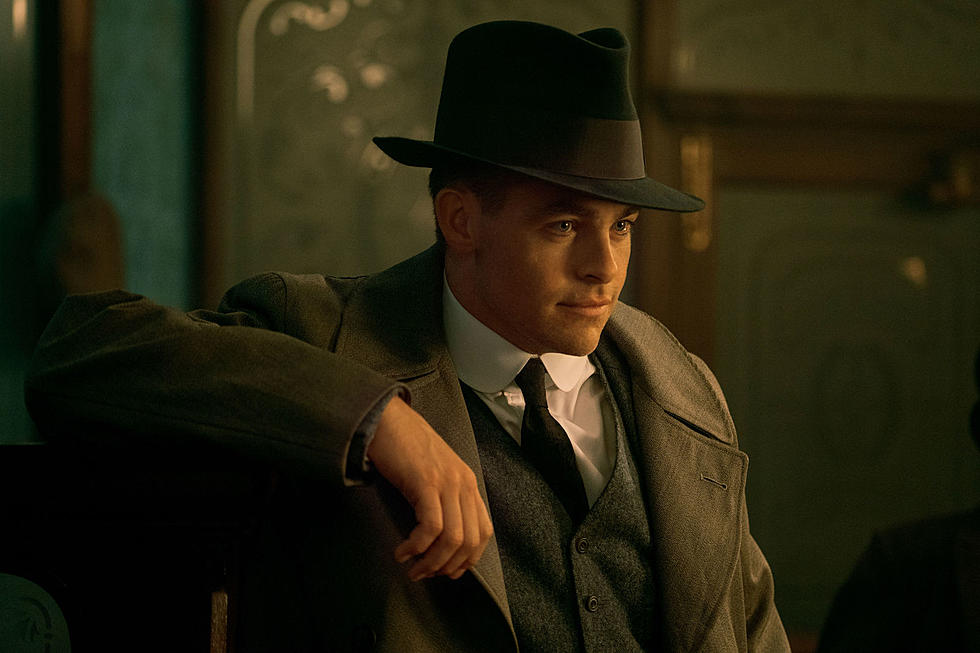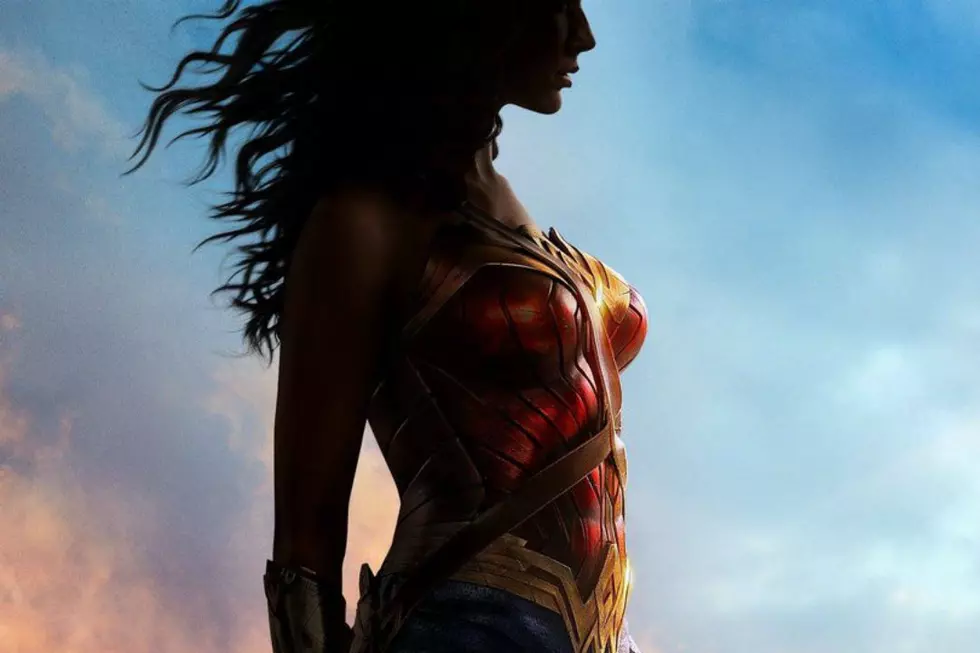
‘Avengers: Age of Ultron’ Review: Joss Whedon Assembles an Inspiring Blockbuster
There’s a lot to like about Avengers: Age of Ultron, but the coolest thing about it is the way it reclaims the comic book part of the phrase “comic-book movie.” Rather than using these characters to do something “edgy” or “adult” or “important,” or sanding down their quirkier edges to appeal to as broad and mainstream an audience as possible, Age of Ultron doubles down on its source material’s geeky origins.
To be sure, it still fulfills all the requirements of a satisfying summer blockbuster. There’s action, humor, drama, and even a little romance. But there’s also sentient robots musing on the nature of existence. At one point, a character takes a bath in a hallucinogenic reflecting pool. A new Avenger has red and green skin, a yellow cape, and a gem implanted his forehead. Toward the end of the film, three different characters team up to shoot Ultron, an evil robot hellbent on world domination, with their respective laser beams and in that moment I thought to myself, “This is the nerdiest thing I have ever seen, and it’s going to make a billion dollars.” That’s cool. Writer/director Joss Whedon served his corporate masters without sacrificing even an ounce of what makes these comics weird and wonderful and special.
There’s at least three or four stories going on simultaneously in Age of Ultron, some of which are setting up later Avengers adventures, but the main plotline involves Ultron; an artificial intelligence Tony “Iron Man” Stark (Robert Downey Jr.) and Bruce “Hulk” Banner (Mark Ruffalo) cook up in a lab from data recovered at a Hydra base in the made-up Eastern European country of Sokovia. Stark, given a glimpse of a dark possible future by a mysterious woman with mental powers (Elizabeth Olsen, aka the Scarlet Witch), decides that he needs to build “a suit of armor around the world” to protect it from threats too big for the Avengers to handle.
Enter Ultron (voiced by James Spader). But the program, who’s partial to the song “I’ve Got No Strings” from the Disney movie Pinocchio (Killbots believe in corporate synergy too!), decides humanity itself is the greatest menace to Earth’s survival. While the Avengers are partying to celebrate a successful mission, Ultron awakens, shuts down Stark’s A.I. J.A.R.V.I.S. (voiced by Paul Bettany), and then builds himself a body out of discarded Iron Man parts before crashing the superhero shindig in the most literal way possible. After an initial skirmish, he commences with a globe-hopping plan to wipe the world clean and start life over at square one. The only ones who can stop him, of course, are the Avengers. But a rift is beginning to grow in the team over Tony Stark’s actions and his by-any-means-necessary approach to preventing the impending catastrophe only he knows is coming.
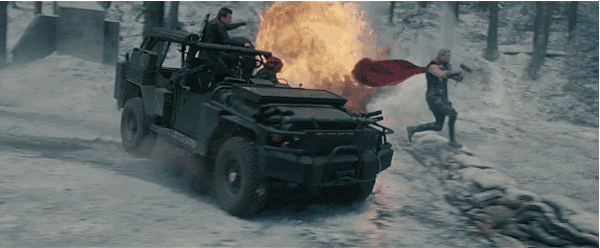
Truth be told, in a world that already has Ex Machina, Ultron’s schemes feel a little passé. But Spader’s performance as the ultimate Joss Whedon baddie (namely a hugely powerful and extremely chatty villain who’s so smart he can make lots of meta-references to the fact that he’s trapped inside a movie) is, like just about everything else in Age of Ultron, a lot of fun. And with his army of backup bots, and the ability to upload his consciousness into any computer, he serves as a suitably stalwart opponent for a team that includes heavyweights like Iron Man, the Hulk, Thor (Chris Hemsworth), and Captain America (Chris Evans), alongside less-powerful heroes like Black Widow (Scarlett Johansson), Hawkeye (Jeremy Renner), and Nick Fury (Samuel L. Jackson).
Whedon has said in interviews that making Age of Ultron was a “nightmare” that nearly killed him. The finished result, though, looks effortless. He manages to give all the returning heroes moments to shine (including some, like Hawkeye, who were glorified extras in the first Avengers), and seamlessly incorporates new players like Scarlet Witch and her super-fast brother Quicksilver (Aaron Taylor-Johnson). He references the individual heroes’ ongoing concerns (as when Captain America and Anthony Mackie’s Falcon mention their “missing person,” a nod to the title character from last year’s Captain America: The Winter Soldier) and teases their upcoming escapades (Avengers: Infinity War!). The dialogue is full of memorable lines and sharp, screwball comedy-style banter. (No wonder His Girl Friday gets a clever but subtle shoutout.)
The movie opens with a bang — with all the Avengers working together to raid a Sokovian Hydra base — and rarely lets up, even as it fills out the heroes’ backstories (particularly Hawkeye’s), beefs up their conflicts (Cap and Iron Man disagree about Tony Stark’s preventative approach to war), and deepens their relationships (sparks start to fly between Bruce Banner and Black Widow). Some threads could have used a bit more screentime (like why Tony Stark unretired following the events of Iron Man 3) and others could have used a bit less (Thor’s side story is a bust). But the sheer, exuberant lightness of the whole production amidst all those plots, characters, in-jokes, and references is incredible. This is one of the great juggling acts in movie history.
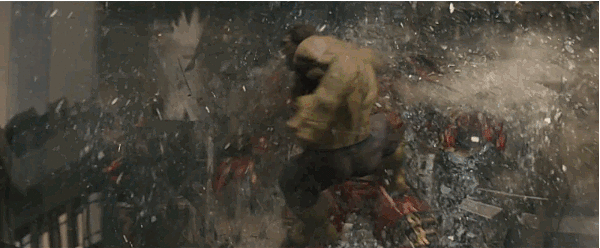
If there’s a larger idea at the heart of Age of Ultron, it’s exactly that: heart. Marvel’s emergence as a cinematic powerhouse continues to inspire many imitators, most of which ape the studio’s style and super-powered bombast but leave out its compassion and soul. There’s a running gag throughout Age of Ultron about Thor’s hammer; a legend says only those who are worthy can lift it, and in the early party scene each of Earth’s Mightiest Heroes tries and fails to pick it up (Cap comes closest). It’s a great gag, but it also speaks to the central theme Whedon is exploring here, which is the value and measure of a hero. What makes someone worthy? Why do the Avengers need a character like Hawkeye, a regular joe with a bow and an arrow, when they already have gods and monsters and men made of iron?
It’s because in the Marvel Cinematic Universe ideals, not abilities, define heroism. As the Avengers head into final battle with Ultron, Captain America gives his troops one of his classic inspirational Captain America pep talks. “This isn’t just about defeating him,” he says. “This is about whether he’s right,” referring to Ultron’s belief that mankind’s propensity for conflict, disagreement, and war will be its undoing. Even as the Avengers try to defeat Ultron, they go out of their way to protect the innocent lives he’s put in harm’s way. They refuse to rest until everyone is safe. The Avengers don’t just dress like heroes, they act like them too. Call it hokey and old-fashioned if you want. I just call it comic book-y.
More From KLAW-FM
